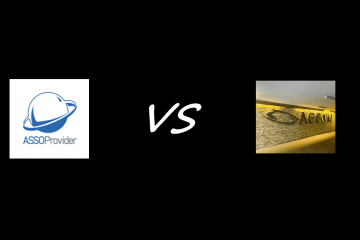Over-the-pinnacle (OTT) platforms that offer video and audio content over the net have exploded in recognition in recent years. most important OTT carriers like Netflix, Hulu, Amazon Prime Video, Disney+, HBO Max, and many others have millions of subscribers within the United States of America.
however, regulating these net-based structures has been a complex difficulty, as they want to be well in shape into traditional media classes like cable or broadcast television.
right here’s a top-level view of how OTT platforms are in modern times regulated in the US in relation to areas like privacy, accessibility, and content standards.
OTT Platform Regulation: Privacy And Browsing Data
One main vicinity of law around OTT structures involves consumer privacy and the gathering of surfing statistics. The Federal Trade Fee (FTC) is the primary business enterprise that oversees net privacy problems inside the United States of America.
The FTC’s approach to protective patron privateness is based on ensuring that agencies are transparent approximately their records collection practices and provide purchasers with notice and desire about how their personal records are used.
FTC Enforcement Actions
The FTC has brought enforcement actions against OTT companies for privacy violations. For example:
- In 2019, the FTC fined video platform Vimeo $1.13 million for collecting personal information from users who opted out of data tracking.
- In 2019, the FTC also fined musical.ly (now part of TikTok) $5.7 million for violating child privacy law COPPA.
- In 2022, the FTC fined Twitch $1.8 million for collecting personal data from users under 13 without parental consent.
California Privacy Laws
California has enacted several state privateness legal guidelines that impact how OTT systems operate inside the country:
- The California Client Privacy Act (CCPA) calls for organizations to disclose how they collect, use, and percentage non-public information. It additionally offers customers the proper to opt out of data income.
- The California Privacy Rights Act (CPRA) elevated CCPA by permitting users to limit the usage of touchy personal records and set up a California privacy protection organization.
- Age-appropriate format code requires agencies to consider the exceptional pursuits of child customers.
these laws in California have an impact on privacy practices at OTT structures nationally.
Platform Privacy Policies
OTT structures like Netflix, Disney+, Hulu, and others have posted privacy rules to show what user facts they accumulate, how it’s miles used, and the way customers can manipulate privacy settings.
however, patron advocates argue that privacy rules can be tough to recognize and that customers require extra transparency and manipulation. There had been calls for stronger federal privacy legislation inside the US.
Accessibility Regulations For OTT Platforms
Another area of regulation for internet-based OTT platforms relates to accessibility, ensuring equal access for those with disabilities.
The Americans with Disabilities Act (ADA) prohibits discrimination based on disability and requires companies to provide “auxiliary aids and services” to ensure effective communication.
Ada Enforcement And Lawsuits
Various advocacy groups have pushed OTT platforms to improve accessibility features for the blind and deaf through lawsuit settlements and consent decrees:
- In 2012, Netflix agreed to add closed captioning to all content by 2014 in an ADA settlement.
- In 2015, Hulu settled an ADA complaint by agreeing to improve accessibility including captions and descriptions.
- In 2019, Amazon settled lawsuits and agreed to expand audio descriptions and other features.
As a result of legal pressure, major OTT providers have expanded accessibility options like captions, descriptive audio, and screen reader support. However, advocacy groups say there is still room for improvement in equal access.

Content Moderation And Age Ratings
Unlike broadcast television which is regulated for obscene or indecent content by the FCC, internet-based OTT services are not subject to the same content restrictions.
However, most major OTT platforms engage in some degree of self-regulation when it comes to content moderation and age ratings.
Rating Systems
- Netflix uses maturity ratings like TV-Y, TV-Y7, and TV-MA to inform viewers.
- Amazon Prime Video uses both age-based ratings and content-based ratings.
- Hulu uses the TV Parental Guidelines system with ratings like TV-PG and TV-14.
Platforms provide parental controls based on these ratings to restrict children from viewing adult content. Ruse De Guerre Movie OTT is rated TV-MA on Netflix for graphic violence and adult themes.
Removing Controversial Content
OTT platforms have faced pressure to remove content deemed objectionable, offensive, or dangerous. They must balance free speech concerns with demands for moderation.
- At the government’s request, Netflix pulled an episode of a show in Saudi Arabia.
- Amazon and other platforms dropped books and videos containing misinformation after public pressure.
- YouTube regularly faces demands to remove hateful, violent, or sexually explicit content.
Moderation is often done through algorithms and human review teams rather than formal regulation. But decisions can be controversial.
State And Local Taxes On OTT Services
Unlike traditional cable TV, OTT streaming services have generally not been subject to state and local taxes in the US because they are internet-based platforms.
But some states have moved to apply sales taxes to streaming subscriptions:
- By 2022, over 30 states had enacted taxes on OTT services, including Florida, Hawaii, Mississippi, Louisiana, Kentucky, Nebraska and others. The upcoming Tiger 3 movie starring Salman Khan will be released directly on the OTT platform YRF Entertainment, subject to these new state taxes on streaming services.
- Chicago enacted a 9% “Netflix tax” on streaming services in 2015.
- Pennsylvania is requiring OTT platforms to collect and remit taxes on subscriber fees.
Taxation of streaming services is likely to expand as more states and cities update tax codes for the digital era. OTT platforms sometimes pass these costs to subscribers.
Calls For New Regulation Of Online Platforms
Some policymakers have called for more expansive regulation of large internet platforms, which would impact major OTT video providers:
- A federal privacy law establishing national standards for data collection practices.
- Changes to Section 230 of the Communications Decency Act which shields platforms from liability for user-generated content.
- Stronger enforcement of antitrust laws against anti-competitive behavior by dominant tech companies.
- Updates to children’s online safety protections.
However legislative proposals to increase regulation of the tech industry often face opposition and legal challenges over free speech issues.
The regulation of OTT streaming platforms remains a complex balancing act between promoting innovation, protecting consumers, and limiting legal risk.
The growth of internet-based entertainment will continue to raise new policy issues around privacy, free expression, and competition in the US.
How Does The FTC Protect Privacy For OTT Platform Users?
The FTC oversees internet privacy and can take enforcement action against OTT companies for failing to protect consumer data or violating privacy rules. FTC consent decrees require improved privacy practices.
What Accessibility Features Are OTT Platforms Required To Provide?
Under the Americans with Disabilities Act, OTT platforms must offer accessibility tools like captions, audio descriptions, and screen reader capability so users with disabilities can access content.
Do OTT Platforms Face Any Content Moderation Requirements?
OTT platforms largely self-regulate when it comes to content moderation and age ratings. But they do face public pressure to remove offensive or dangerous content.
Conclusion
OTT platforms in the USA navigate a regulatory landscape that blends industry self-regulation with government oversight. While guidelines for content and data privacy exist, ongoing debates revolve around the extent of necessary regulation.
The challenge lies in upholding the principles of free expression while ensuring a responsible and safe digital environment for users. The dynamic nature of this regulatory framework reflects the evolving digital media landscape.



0 commenti